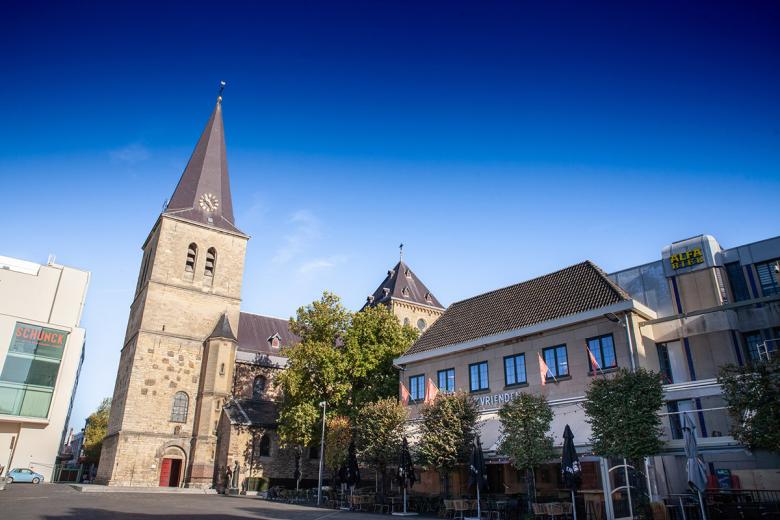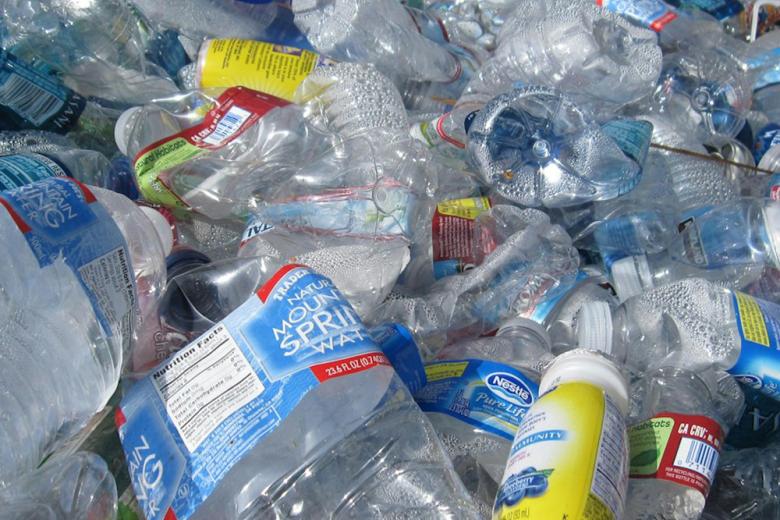Aachen-Maastricht Institute for Biobased Materials laboratory opens
On 9 December, the Aachen-Maastricht Institute for Biobased Materials (AMIBM) is opening 1500 m² of new laboratories at the Brightlands Chemelot Campus. The institute will present new facilities and initiatives, such as the ‘bi-component wet spinning line’ for the development of medical fibres, which is the only one of its kind in the world. Within AMIBM, Maastricht University (UM), RWTH Aachen and Fraunhofer work together in a unique partnership.
The Brightlands Chemelot Campus is the place for triple helix cooperation in the field of new materials. More than 50 employees from the three cooperating partners are working on the development of innovative and sustainable materials, such as materials constructed with the waste from mechanically peeled shrimp, using the help of deep-sea bacteria. Director Richard Ramakers: “People from around the world are applying to work with us. Working towards a non-petrol based economy in this dynamic location really appeals to people.” Both national as well as disciplinary boundaries are being crossed at AMIBM, where biologists, chemists, engineers and medical practitioners from 16 countries work together. AMIBM was realised with support from the Province of Limburg, as part of the ‘Kennis-As Limburg’ project.
Unique wet spinning line
The one-of-a-kind ‘bi-component wet spinning line’ for the development of medical fibres that is being presented today is a special facility that is almost 20 metres long, from which bio-based fibres are spun ‘wet’ (from a polymer solution) and at room temperature. This is already special in itself, but it can also be done using two different bio-based polymers at the same time (for the production of bi-component fibres). Thus, different properties can be combined in a single fibre, such as the combination of strong and anti-bacterial fibres for implants. It is anticipated that these fibres will eventually get a coating, which will add even more medical properties to the materials. AMIBM is currently developing specific fibres for implants; the focus is on cardiovascular applications such as bio-hybrid heart valves. ‘From plant to implant’ is the motto at AMIBM.
Textiles from biobased materials
AMIBM is also announcing today that it is starting with the ‘BioTex Fieldlab’, a testing ground for developing production processes for fibres and threads from new and currently available biopolymers. This builds a bridge from bio-based polymers to market-ready applications in textiles, such as bed linens, clothing and carpets. The partners in the project are AMIBM, MODINT (the Dutch trade association of 600 businesses in apparel, fashion accessories, carpets and interior textiles) and CHILL (Chemelot Innovation and Learning Labs). There will also be close collaboration with biopolymer and textile producers. The project partners for the BioTex Fieldlab were awarded a subsidy of €760,000 from the Operational Programme South Netherlands (OP Zuid).
Svenja Schulze, minister of Science in the German federal state of North Rhine Westphalia, is excited about the project. View a video message from her that was shown during the opening of the facility.
For more information, visit the AMIBM website
Also read
-
In Kerkrade, you can listen to the invisible universe
UM and Discovery Museum in Kerkrade make the Einstein Telescope understandable for everyone.

-
Municipality of Heerlen, Parkstad Urban Region and UM invest 6 million in collaboration
Heerlen grants a one-time contribution of €1,478,050 to Maastricht University as part of the Regio Deal application ‘Fundament onder UM-onderwijs in Heerlen’. This amount comes from the Fonds Economische Structuurversterking (FES). The funding will help establish university education facilities in...

-
Special Collection Policy Briefs handed over to Marieke Spijkerboer, Director Sustainable Living Environment and Circular Economy
AMIBM researchers Marco Serafini, Cris Garcia-Saravia Ortiz-de-Montellano, and Yvonne van der Meer contributed to a unique collection of policy briefs published by Studio Europa Maastricht. The document investigates the goals of establishing a European circular economy and considers its policy...
